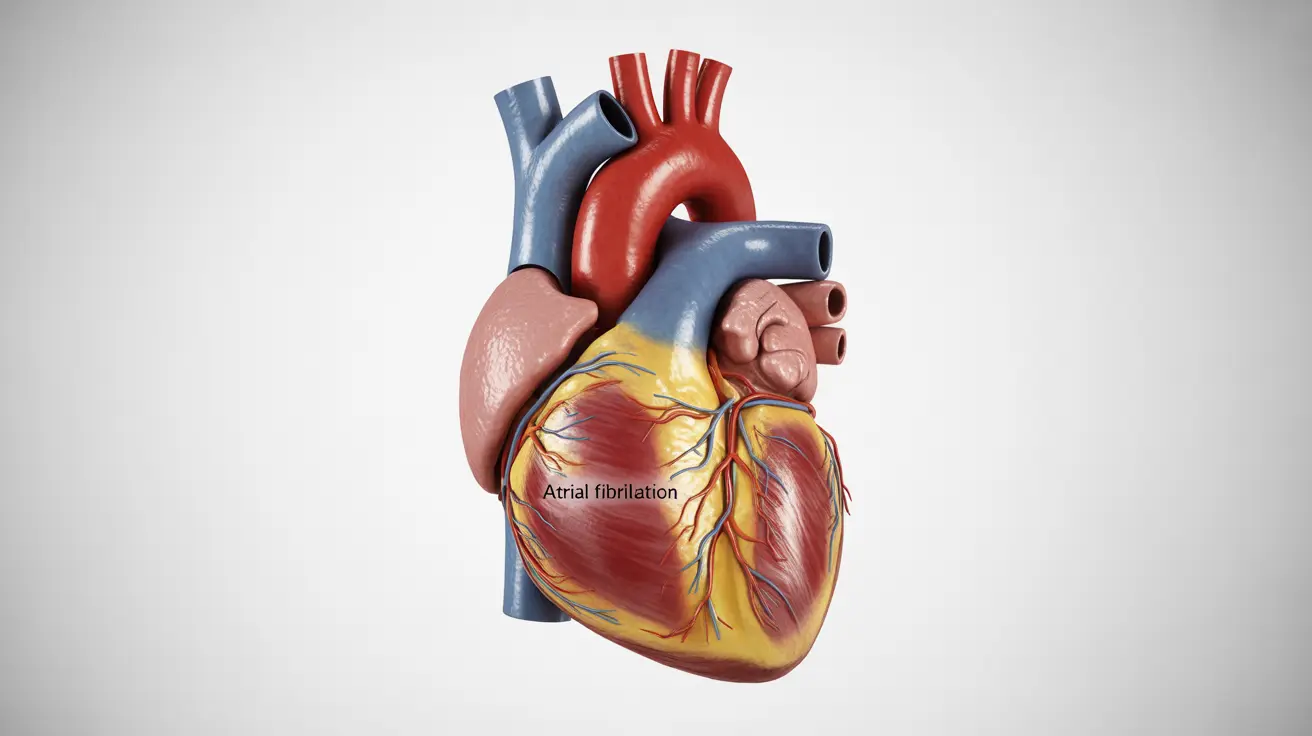Chronic atrial fibrillation is a persistent heart rhythm disorder that can significantly impact your quality of life if left unmanaged. Unlike temporary forms of atrial fibrillation that may come and go, chronic AFib represents an ongoing condition that requires careful medical attention and lifestyle modifications to control effectively.
In this comprehensive guide, we'll explore the essential aspects of chronic atrial fibrillation, including its distinctive symptoms, treatment options, and strategies for reducing associated risks. Understanding this condition is crucial for both patients and their caregivers to ensure optimal management and prevention of complications.
Understanding Chronic Atrial Fibrillation
Chronic atrial fibrillation occurs when the heart's upper chambers (atria) beat irregularly and out of coordination with the lower chambers (ventricles) for an extended period. This condition is considered chronic when it persists for more than 12 months or requires intervention to maintain normal heart rhythm.
Unlike paroxysmal or persistent atrial fibrillation, which may resolve spontaneously or with treatment, chronic AFib typically requires ongoing management strategies to control symptoms and prevent complications.
Key Symptoms and Warning Signs
Recognizing the symptoms of chronic atrial fibrillation is crucial for early detection and treatment. Common symptoms include:
- Irregular heartbeat or heart palpitations
- Persistent fatigue and weakness
- Shortness of breath, especially during physical activity
- Dizziness or lightheadedness
- Chest pain or discomfort
- Reduced exercise tolerance
- Anxiety related to heart rhythm awareness
Diagnostic Process and Testing
Healthcare providers use various methods to diagnose chronic atrial fibrillation accurately. The primary diagnostic tools include:
- Electrocardiogram (ECG or EKG)
- Holter monitor for extended heart rhythm monitoring
- Event recorders for intermittent symptoms
- Echocardiogram to assess heart structure and function
- Blood tests to check thyroid function and other relevant markers
Treatment Approaches
Medication Management
Several medications play crucial roles in managing chronic atrial fibrillation:
- Anticoagulants to prevent blood clots
- Rate control medications to regulate heart rate
- Rhythm control medications to maintain normal heart rhythm
- Anti-arrhythmic drugs for rhythm stabilization
Procedural Interventions
When medications alone aren't sufficient, doctors may recommend:
- Electrical cardioversion
- Catheter ablation
- Left atrial appendage closure
- Pacemaker implantation in specific cases
Lifestyle Management Strategies
Effective management of chronic atrial fibrillation often requires significant lifestyle modifications:
- Regular physical activity as approved by your healthcare provider
- Heart-healthy diet low in sodium and saturated fats
- Stress reduction techniques
- Limited alcohol consumption
- Smoking cessation
- Regular sleep schedule
- Weight management if necessary
Complication Prevention
People with chronic atrial fibrillation face increased risks of certain complications. Prevention strategies include:
- Strict adherence to prescribed medications
- Regular medical check-ups
- Blood pressure monitoring
- Prompt reporting of new or worsening symptoms
- Following recommended lifestyle modifications
Frequently Asked Questions
- What are the main symptoms of chronic atrial fibrillation, and how is it different from other types of atrial fibrillation?
Chronic atrial fibrillation symptoms include persistent irregular heartbeat, fatigue, shortness of breath, and dizziness. Unlike paroxysmal or persistent AFib, chronic AFib continues for more than 12 months and typically doesn't resolve without intervention.
- What treatments are available for chronic atrial fibrillation, and which medications are most commonly prescribed?
Common treatments include anticoagulants, rate control medications, and anti-arrhythmic drugs. Procedural interventions like catheter ablation or cardioversion may be necessary. The most prescribed medications include beta-blockers, blood thinners like warfarin or newer anticoagulants, and rhythm control medications.
- Can chronic atrial fibrillation be managed with lifestyle changes, and what lifestyle adjustments are recommended?
Yes, lifestyle changes play a crucial role in managing chronic AFib. Key adjustments include maintaining a heart-healthy diet, regular exercise as approved by your doctor, stress management, limiting alcohol, quitting smoking, and maintaining a healthy weight.
- What are the main risks and complications associated with chronic atrial fibrillation, such as stroke, and how can these risks be reduced?
The main risks include stroke, heart failure, and blood clots. These risks can be reduced through proper medication adherence, especially anticoagulants, regular medical monitoring, and lifestyle modifications. Risk assessment tools help determine appropriate preventive measures.
- How is chronic atrial fibrillation diagnosed, and what tests do doctors usually use to confirm it?
Diagnosis typically involves electrocardiogram (ECG) testing, Holter monitoring, and event recorders to document heart rhythm. Additional tests may include echocardiogram, blood tests, and stress tests to evaluate heart function and underlying conditions.




